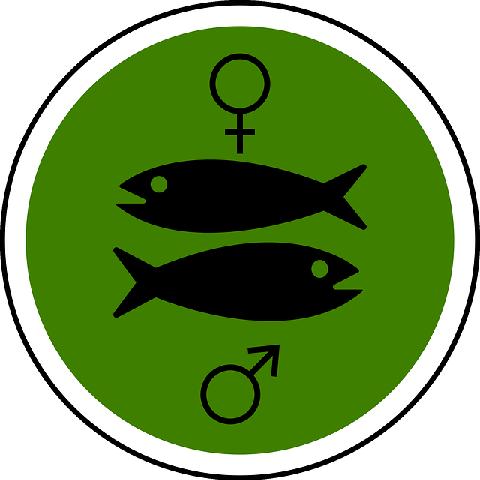
5 minute read
Supernal Magazine Australia February Issue out now. It's free to subscribe Mental Health Matters / Over The Rainbow / Manifesting Maven
Mental Health Matters
Behind Closed Doors: Impacts of - Domestic Violence How to Get Help!
By Derran Heney Mental Health Professional

The Department of Human Services (2019) defines family and domestic violence as any behaviour that is violent, abusive, threatening or controlling in nature, causing a person to feel unsafe.
Both men and women can experience family and domestic violence. According to the Australian Broadcasting Corporation (ABC, 2016), “Australian police are called to deal with domestic violence (DV) situations every two minutes.” This sheds light on the extent and epidemic proportions of this serious issue. More statistics are available here: https://www.whiteribbon.org.au/ understand-domestic-violence/ facts-violence-women/domestic-violence-statistics/
Behaviours identified under the banner of ‘family and domestic violence’ are not limited to, but include, physical or sexual assault, threats, verbal abuse, psychological and emotional blackmail, using technology to abuse or for surveillance, stalking and predatory behaviours, keeping a person under surveillance and control.
The Family Violence Protection Act (2008) further defines family violence as any behaviour that causes a child to hear, witness or otherwise be exposed to the effects of these behaviours. (Family Violence Protection Act, 2008, Section 57).
Victims of DV can experience extreme fear, emotional distress, ongoing psychological and physical trauma; anxiety, depression, irritability,
helplessness and suicidality. Victims don’t readily report DV due to worry about being believed. DV occurs most often behind closed doors with perpetrators of DV appearing very different to the outside world.
Children in DV situations commonly experience anxiety, hypervigilance, low self-esteem and strong emotions like anger, extreme sadness, and feeling afraid for the safety of themselves or loved ones. Children can experience stress and emotionally based physical symptoms, i.e. headaches, tummy aches and insomnia.
To read the whole story, go to www.supernalmagazine.com.au and subscribe free
Over the Rainbow
Dress For Success
by Celeste de Vis

I volunteer for the Salvation Army, Western Port Mission Centre. My role is Volunteer Coordinator of Emergency Relief Services. This is highly rewarding, yet at times complex and emotionally taxing.
We provide material aid, such as free pantry food items, including baked goods and fruit/ veggies, act as a referral service, provide pastoral care and also offer our centre as a ‘drop-in’ centre for a cuppa and chat.
Each year, community service organisations on the Mornington Peninsula are invited to attend a Material Aid Forum. The aim is to ensure that we all leave armed with the most current and relevant information about our fellow service providers. Referrals to other providers are an essential part of our role to best support our clients.
It was during the 2018 Material Aid Forum that I met with Dress for Success South East Melbourne. The representatives described their service as one where they provide good quality, designer brand clothing free to members of the community. This service supports people who are not able to financially acquire clothing for events, such as job interviews and employment.
Dress for Success runs approximately one and a half hour appointments, working one on one with each client. The personalised dressing session is undertaken by trained volunteers , and additionally, they offer a oneon-one interview coaching/ mentoring session to help improve client confidence and interview skills.
But the relationship does not end there. After a client finds work, they or their agency can rebook another visit to the Dress for Success Styling Suite. They can then obtain further free work-ready outfits.
I was also pleased to learn from the representatives that they were working alongside a transgender woman named Rebecca, who was providing individual support to the transgender community.
The program is called Be Who You Are (BWYA). As quoted from their website, this program is, ‘exclusively for transgender women at any stage of their journey. Treat yourself to a one-onone styling session in the wonderful Dress for Success South East Melbourne Styling Suite: a great way to explore your passion for fashion in a safe, friendly and welcoming environment’.
I organised to chat with Rebecca to discuss this valuable service offered at the Frankston store.
Rebecca, how did you find out about the BWYA program at Dress for Success?
To read the whole story, go to www.supernalmagazine.com.au and subscribe free
Manifesting Maven
Imposter Syndrome – What You Need to Know
By Dr Brooklyn Storme PhD

Have you ever said things like this to yourself, in your business: “I’m not qualified enough to speak about that”, “What makes me an authority on this subject area?”, “I’m not good enough to do that” and similar things? If so, it may be that you were experiencing what we call Imposter Syndrome.
By definition, Imposter Syndrome is - ‘the persistent inability to believe that one’s success is deserved or has been legitimately achieved as a result of one’s own efforts or skills’ (Oxford Dictionary, 2020). It affects more entrepreneurs than not and it’s mostly women that experience the condition.
There’s been a great deal of research undertaken, and many agree that there are five types of Imposter Syndrome.
The first is - Superman or Superwoman. Perhaps you can recall a time in your workplace where there was one person that always arrived early or stayed back late. They volunteered for everything and were always busy, running from room to room or desk to desk. They may talk quickly, or look at their watch, or be huffing
and puffing from the energy they were exerting? This type of Imposter Syndrome usually occurs when someone is feeling less than competent with the work they should be doing. To compensate for that lack of competency and fear of being ‘found out’, they distract themselves and those around them by engaging in busy work. This works for a while, but a savvy manager or team member will often be able to determine what’s really going on for that person.










